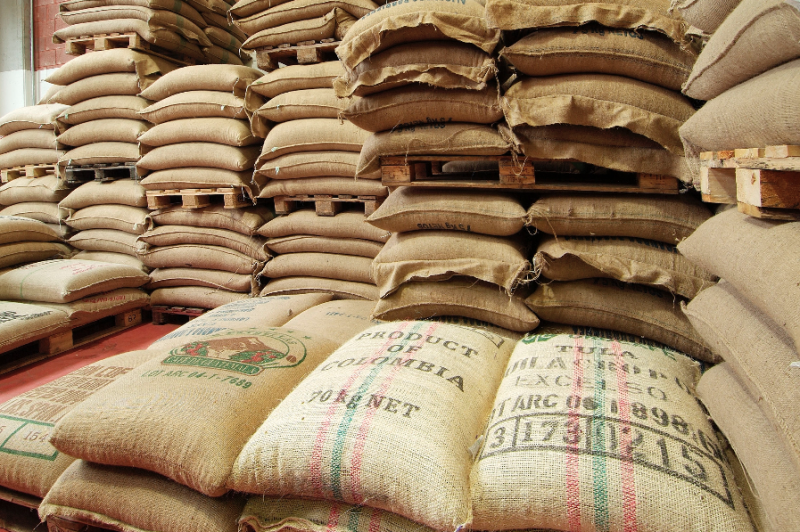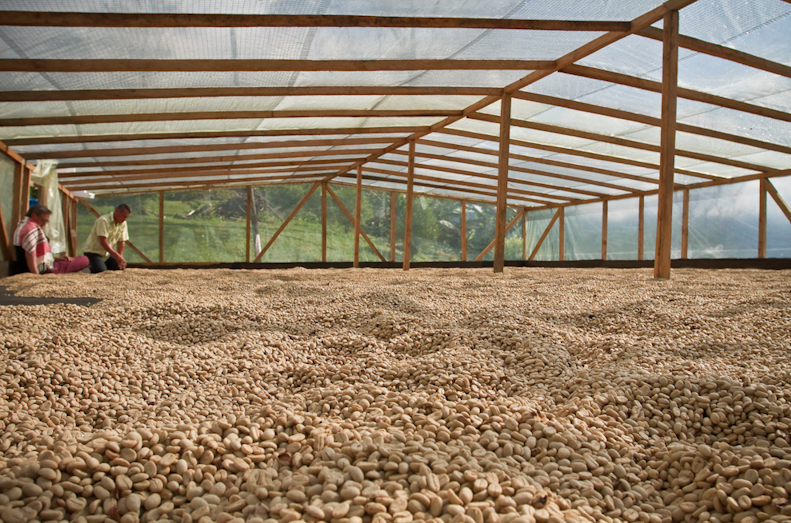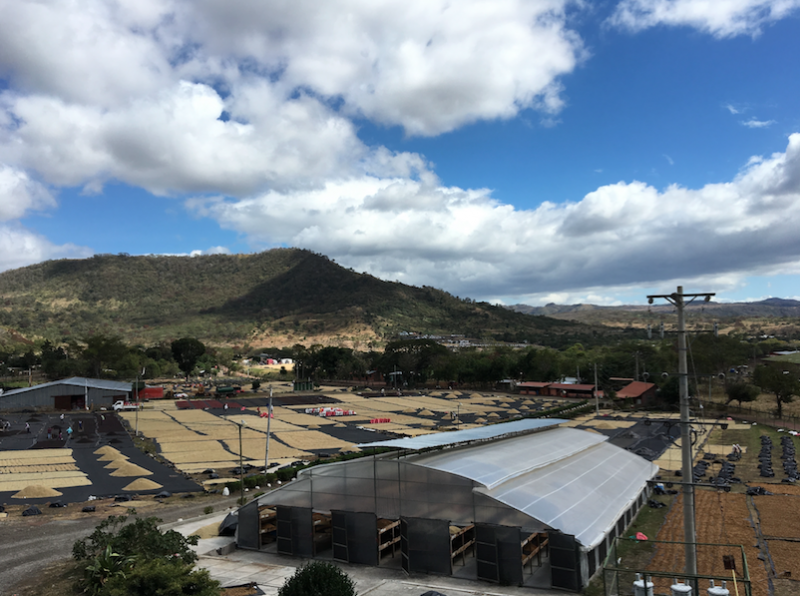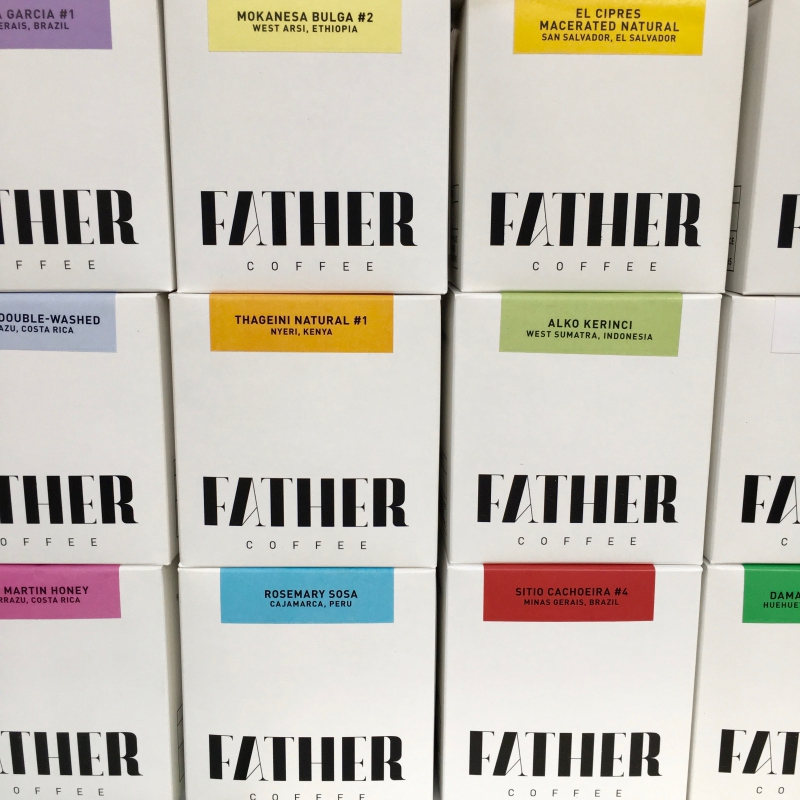
And more than that, the benefits of a diverse coffee line-up at our favourite coffee roasters reaches all the way to farm level.
Words by Jesse Dodkins
It is becoming more common to see coffee roasters offer more than just one flagship blend that gives the consumer the generic flavours of ‘coffee’. Roasters are providing choice with a range of single origin coffees and therefore a variety of flavour profiles. This variety at your local roastery showcases the the complexity and qualities unique to each origin and can satisfy a wide range of tastes and preferences whether you enjoy "nutty, rich" profiles over "floral, fruity" profiles. Specialty coffee has something for everyone and that is its ultimate value.
It is important here, that we don’t define specialty coffee as a flavour profile. I often speak to business owners and consumers alike who at the very mention of specialty coffee wince as if they have bitten into a lemon when they imagine tasting when drinking a cup that lives up to their idea of specialty coffee. So, if specialty coffee is not a specific flavour profile, then what is it? It is a grade of quality for coffee (scoring 80 points or higher according to a qualified Q-Grader) and it is made up of an industry of individuals and businesses who are all concerned with the value in this relationship chain. This includes producers, roasters, coffee shops and coffee drinkers but also includes machine manufacturers, logistics companies and even dairy and alternative milk companies.
The specialty sector has been incredibly persistent and has grown solidly over the last 10 years. According to a report by Allegra, the specialty market has been growing at 12% year on year and is expected to continue following this trend. Part of what enables this market expansion is the consistent supply of coffee grown at specialty grade. A lot of work has to go into go into increasing cherry yields at origin year on year while maintaining this quality. To do this, it means looking at often tiny and unique details that will end up making the difference. Take the development that occurred in the small region Copan in Honduras, for example. A number of smallholder producers in collaboration with agronomists from Falcon Specialty managed to increase the ripe cherries picked from 55% to 85% leading to an overall improvement in quality and saw over 60 000 USD paid in quality premiums in the region. This wasn’t because of a big wholesale change but rather changes in the little details, in this case, correct ripe cherry selection. Key areas of improvement were in cherry selection and picking, processing and drying. Ripe cherry selection is key to producing quality coffee, and the standard in Honduras is generally quite poor. However, through the development of a micro-lot picking team shared by the 25 producers, they saw huge results. Falcon also provided training for the technical staff at the mill on a range of processing methods, and how to use the solar driers to control drying time and temperature in order to maintain quality and longevity. Small details like this can be repeated over and over to get the same results.

One of the incredible things about specialty coffee is the diversity of flavour profiles available which opens up a world of exploration and opportunity outside of the specialty coffee shop. Recently multi-Michelin Starred Chef, Alain Ducasse, has launched his own specialty coffee roastery so that he is able to create better continuity between the high quality food that he offers and the coffee that comes after it. You also see specialty coffee being introduced in hotels where you can really show off the diversity of specialty coffee by building a coffee program that changes throughout the day (Fancy!). For example a rich chocolatey Minas Gerais Brazil filter coffee to go with breakfast, and a delicate floral, Guji Ethiopian Cappuccino for “afternoon tea”.
But the complexity of a naturally processed Gesha village is not for everyone, some crave the malty, chocolatey goodness they’ve come to love in their morning flat white. I would argue that specialty coffee can offer the best version of a familiar chocolatey and nutty profile that they’ve ever had.

The little details between how each lot is treated is ultimately what drives differences in flavour profiles. The first time this really hit home for me was on my origin trip to Nicaragua to visit the Mierisch family. Each lot was separated thoroughly by varietal as well as harvests separated by days. Processing was extremely meticulous, including parabolic dryers (similar structure to a greenhouse) and every sorter you can think of. I tasted the effect of the tweaks in detail on the cupping table where coffees from the same lot were vastly different in their flavour profile. As a roastery, when we are sharing coffee with customers over the bar or with our wholesale customers in their own coffee shop, it is the vivid experience of the distinct flavour profiles between coffees that allow us to point to the skill and tremendous value that the producer adds. Producers have had to adapt to become strategic business people using their expertise to create value. By highlighting the valuable work that the producers do, our broad range of consumers can see greater value in the cup they are drinking and become more familiar with the idea of paying more for coffee and therefore growing value in the industry even further.
The big question recently while the coffee price crisis rages on is how can we positively impact what happens to the people within the system, most of all the farmers. I believe that by encouraging a diverse range of flavours from origin we can assist with this as consumers and roasters. This diversity in flavour profiles can only be achieved by looking at the little details as they’re doing at farm level. As roasters we can measure roast curves and create roast profiles to get the best out of the beans. This also means that it can continually be improved year on year. Having a diverse range of coffees showcases the value of coffee roasters. It shows that their role is more than just making coffee consumable, but requires a thorough understanding of the mechanics of roasting that they can apply to a diverse range of coffees each requiring minute adjustments. Like with coffee production, this comes with measuring details for repeatability and improvement. This trust that comes from consumers with this value means that roasters end up becoming the gatekeeper for coffees that consumers end up being exposed to. This gives them a responsibility to showcase a range which is inclusive of all preferences (specialty coffee is a grade of quality not a preference) and showcase the value of expertise of producers.
What about the baristas (both home and commercial)? In my first few months of being a barista, I was given some great advice from a coffee professional: “Taste everything”. By tasting everything I could get my taste buds on, it really accelerated my learning curve about flavour being linked to origin because the answer to every question was always backed up by taste. I wouldn’t have been able to do this if I did not have a roastery in my neighbourhood that provided a diverse range of coffees. A wide line up of coffee not only grows a barista’s knowledge but also increases their value to the consumer in a coffee cafe. As they taste coffees with different flavour profiles questions arise about what it is that creates that particular distinction, or why is it that the coffee tastes so delicious? Why do these two coffees from the same region in Tolima, Columbia taste so distinct from each other? Is it the altitude? Is it the processing? Is it the varietal? All of these questions lead to understanding coffee in so much more detail. This means they are able to give customers a more rich and valuable coffee drinking experience. This takes the customer out of a habitual low value consumption of coffee to a high value ritualistic consumption as they gain more than a caffeine hit, they gain new information and a connection with the value of the barista, the roaster and the producer. I’m sure a lot of baristas have had the same experience, where a customers attitude towards them changes as soon as they are able to provide them with insight into the coffee world that they didn’t have before. We can play around with and perfect recipes which means that quality can be repeated and coffees appreciated. Ask your local roaster about recipes for espresso and filter!

The distinction between coffees is ultimately a built in mechanism for education around coffee, as we can’t explain what makes it different and unique without introducing consumers to the work of producers, roasters and baristas in a more intimate way. So the benefits of roasters having a diverse line up of coffee means producers can be promoted in the cafe space and consumers can understand their value better, roasters can showcase their skill and value and it also grows and highlights the value of baristas. Everyone wins!